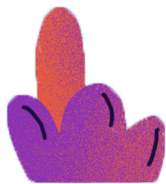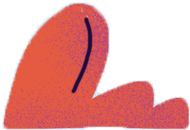By Rajah Sy, National Director of Special Olympics Senegal
Over a billion people, about fifteen percent of the world’s population, live with some form of disability. Within Africa, people living with disabilities are estimated to be about ten percent of the general population, but possibly as high as 20 percent in poorer regions.
People with disabilities are often disproportionately affected by pandemics such as COVID-19. Barriers accessing preventive information and the reliance on others can mean that, when living with a disability, adequately protecting yourself is more of a challenge. Those with intellectual disabilities are also at a greater risk of contracting COVID-19 and can experience barriers to implementing basic preventative measures like handwashing.
Furthermore, even accessing healthcare can prove difficult, something that is worsened by the COVID-19 pandemic. Those with intellectual disabilities often have greater health requirements, meaning that they are more likely to require care, and are more susceptible to secondary conditions and co-morbidities that could worsen the outcome of COVID-19 infections.
That is why when we speak of public health responses, we must ensure they are inclusive. Everyone has different health requirements, and during a pandemic it is even more important that we ensure they are met. Without inclusive and sensitive policies and public health initiatives, countries cannot ensure that each one of their citizens are truly protected and safe.
When I first volunteered as the National Director of Special Olympics Senegal there were only six athletes. This programme has since grown exponentially, now counting over 3,000 athletes and more than 400 volunteers and support staff. Together, we are breaking the stigma surrounding disability. However, we would not be able to realize these goals without the support of others.
That is why we decided to work with Stay Safe Africa, a campaign launched by Dakar-based advocacy tank Speak Up Africa that seeks to protect communities from COVID-19 through the promotion of proven prevention methods. We worked together to provide 500 face masks, designed by Senegalese fashion brand Tongoro, to protect our athletes, their families and coaches. This contribution was so vital for us as the COVID-19 virus is spread through droplets which can be easily inhaled, and those with intellectual disabilities are at even great risk of developing serious complications from the disease. These contributions were further valued as they effectively highlighted the ways vulnerable populations can be cared for.
To take care of our athletes during this very difficult lockdown period, we organized and promoted trainings on prevention methods, panel discussions on sports, nutrition and menstrual health and hygiene.
Leaflets with plain language and clear guidance on how to self-isolate were also distributed. From displaying how to correctly wash hands, to sharing information on how COVID-19 can spread, these leaflets helped to inform and protect our athletes. Receiving simple and clear information about prevention, restriction plans and services in different and accessible formats is the only way to ensure that everyone can be informed.
Another key element of our Stay Safe Africa collaboration was the continuation of physical activity. Staying active has many benefits, particularly for our athletes. Regular exercise has proved to improve mood, and keeping fit is the first step in ensuring we are able to cope with illnesses. This is something that everyone should be doing, not just our athletes. By encouraging physical activity, even during lockdown, we ensure that health remains our priority.
We initiated challenges on sports, for instance the Stay Safe Stay Active challenge, and prevention methods. Participating in these challenges, athletes had to record videos while practising sports at home and following the preventative measures. We also conducted a survey, among families, in order to have a clear and accurate understanding of how our athletes were dealing with the lockdowns and our activities being paused. This survey showed that many athletes gained weight during the lockdown and need to get back on track and to restart their activities.
There is no such thing as a ‘one-size-fits-all’ response. Africa is a diverse continent with equally diverse people and challenges. Advice that may be easily followed by some, can be impossible for others. That is why I call on us all to work together to ensure no element of society is ignored. Those with intellectual disabilities should not be put to the side, particularly not when they are at their most vulnerable. We must ensure that the more vulnerable groups are given the attention they need. No one should be forgotten, especially during a pandemic.
Originally published by New African Woman on August 8, 2020.
Read more articles
- Speak Up Africa annonce l’initiative des Voix africaines de la science pour soutenir la R&D en Afrique
- Speak Up Africa announces new African Voices of Science initiative to champion R&D in Africa
- L’incontournable défi des systèmes de santé en Afrique
- Africa’s quest for immunity: why access to routine immunization is so crucial
- Journée mondiale de l’eau 2021 : Pour une fois, parlons d’assainissement
- World Water Day 2021: Let’s all talk about sanitation for once
- COVID-19 et l’Afrique : Que nous réserve l’avenir ?
- COVID-19 and Africa: What comes next?
- Why is the fight against Neglected Tropical Diseases vital to the fight against COVID-19?
- Renforcer la communauté scientifique africaine pour l’avenir du continent
- Strengthening the African scientific community for the future of the continent
- COVID-19 and Neglected Tropical Diseases: why we must fight them in tandem
- COVID-19 is highlighting the importance of improving sanitation on the continent
- Fighting COVID-19 is a team effort, so which side are you on?
- Our youth have the power to keep Africa safe from COVID-19
- Comment le secteur privé africain peut-il contribuer à l’élimination du paludisme en Afrique ?
- Conversation avec l’OMS sur les MTN dans le contexte de la COVID-19
- A Conversation with WHO on Neglected Tropical Diseases in the context of COVID-19
- Virtual Bridges: A Conversation with AMCOW
- Conversation avec AMCOW : Ce qu’il faut retenir
- En finir avec la négligence pour accélérer le progrès : comment la lutte contre les maladies tropicales négligées peut aider à contenir la propagation de la Covid-19 ?
- Ending neglect to drive progress: How controlling neglected tropical diseases can curb COVID-19
- Pour combattre la COVID-19 nous avons besoin d’un petit peu d’argent pour le changement
- To fight COVID-19 the continental response asks A Little Change for Change!
- Special Olympics Senegal to deliver face masks to athletes in partnership with Speak Up Africa and Tongoro
- Pour les protéger du COVID-19 Special Olympics Sénégal distribue des masques à ses athlètes
- African Legends embrace #19KickupsAgainstCovid19 in support of Stay Safe Africa campaign
- Les stars africaines du ballon rond s’engagent pour la campagne « Restons Prudents Pour l’Afrique »
- 300 dispositifs de lavage des mains distribués dans des écoles sénégalaises pour lutter contre le COVID-19
- 300 handwashing stations installed in schools to keep Senegal safe from COVID-19
- La CAF fait équipe avec Speak Up Africa pour protéger un milliard d’africains contre le COVID-19
- CAF teams up with Speak Up Africa to protect one billion Africans against COVID-19
- Le COVID-19 nous démontre qu’en Afrique il est urgent de renforcer les systèmes de santé pour protéger les communautés
- COVID-19 highlights the urgent need for the African continent to protect its health systems and communities
- Restons prudents: une campagne exhortant tous les africains à jouer leur rôle contre COVID-19
- Stay Safe Africa: A campaign urging all Africans to play their part against COVID-19
- Mosquito’s physical proximity
- As Africa battles COVID-19, over 300 million Africans beg for clean water



